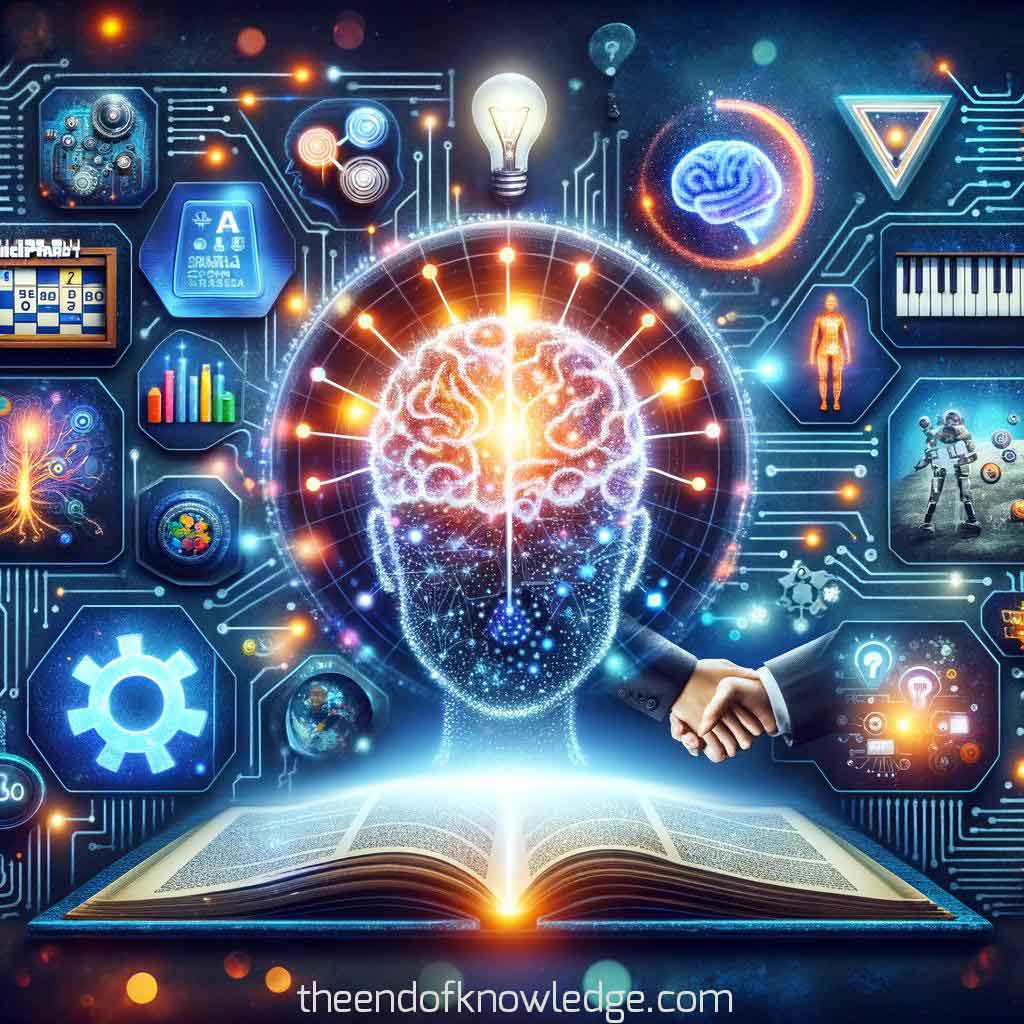 >
>
Concept Graph (using Gemini Ultra + Claude3):
Custom ChatGPT resume of the OpenAI Whisper transcription:
1.- David Ferrucci (IBM Watson, Elemental Cognition) explores the philosophical differences between biological and computer systems, suggesting the distinction might lie primarily in implementation.
2.- Ferrucci sees AI's goals as extending beyond replicating human intelligence, focusing on aiding medical understanding and determining what qualities we want from AI systems.
3.- The inherent flaws of human intelligence (biases, quick judgments) are discussed – are these essential to intelligence, or obstacles to it?
4.- Ferrucci defines intelligence as the ability to predict and understand the world, questioning if machines need human-like understanding for accurate prediction.
5.- The importance of frameworks for machines to meaningfully interact with humans is stressed – learning patterns alone is insufficient.
6.- Ferrucci explores the concept of "alien intelligence," where AI might surpass human capabilities, yet lack the ability to communicate its thought process.
7.- The ideal of human-AI collaboration is proposed, allowing for mutual learning, understanding of frameworks, and improved decision-making.
8.- Elemental Cognition's focus is on AI that understands both patterns and frameworks, enabling effective reasoning and human-like communication.
9.- The challenge of integrating knowledge and frameworks into AI is acknowledged, but Ferrucci sees the potential for machines to learn human-like interpretation.
10.- Explainability in AI is highlighted (e.g., Tesla autopilot), emphasizing the need for collaboration to learn from mistakes and improve systems.
11.- The challenge of Jeopardy's format (understanding clues, formulating questions) tested Watson's ability to quickly parse language and determine its answers' accuracy. This required extensive training and iterative development.
12.- Ferrucci faced initial skepticism about Watson's Jeopardy feasibility. His team's innovative strategies (using existing tech, developing new methods) highlight the project's ambition and problem-solving focus.
13.- Watson's design involved a complex system: question analysis, search, confidence estimation. This was engineered to mimic aspects of human thought, aiming for domain-specific performance.
14.- Watson's Jeopardy performance showed AI's strengths, but also areas where it lacked deep understanding or human-like reasoning. This underscores ongoing AI challenges.
15.- Watson's Jeopardy win is distinct from the broader goal of AI understanding human frameworks (motivations, cause/effect, etc.). Parsing language is not the same as deep semantic reasoning.
16.- Ferrucci wants AI that goes beyond casual conversation to become intellectual partners like the Star Trek computer – aiding in thinking, not small talk.
17.- It's hard to collect data for structured knowledge exchange, showing the need for creative AI training solutions where the right kind of data matters, not just its quantity.
18.- Could AI learn aspects of humor? This delves into the complexities of humor as a human framework and its potential for AI-human interaction.
19.- The philosophical question of AI mimicking emotions without true understanding raises concerns about consciousness and authenticity.
20.- AI must be able to explain its reasoning, especially in critical areas like medicine, for transparency and accountability.
21.- Ferrucci is optimistic about AI surpassing human performance in some areas but acknowledges the ongoing challenge of creating AI with true human-like understanding.
22.- Watson's limitations are seen in light of broader AI goals – task-specific performance is different from deep understanding of human frameworks.
23.- AI's societal implications, both positive (enhanced knowledge) and risks (misuse, influence) are considered.
24.- Ethical concerns about AI's potential power must be addressed to prevent it from gaining undue control.
25.- The "AI as thought partner" concept returns – intellectual dialogue to expand human understanding and reasoning.
26.- AI addressing biases and promoting rational discourse can improve human decision-making.
27.- Could AI truly teach humans new concepts? This would be a significant benchmark for AI development.
28.- Ferrucci sees AI becoming deeply integrated into human intellectual processes, enhancing understanding across various fields.
29.- AI's transformative potential is both exciting and carries responsibility, balancing optimism with a call for ethical considerations.
Interview byLex Fridman| Custom GPT and Knowledge Vault built byDavid Vivancos 2024